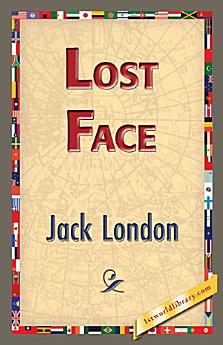Lost Face
Feb 2007 · 1st World Publishing
Ebook
132
Pages
family_home
Eligible
info
reportRatings and reviews aren’t verified Learn More
About this ebook
It was the end. Subienkow had travelled a long trail of bitterness and horror, homing like a dove for the capitals of Europe, and here, farther away than ever, in Russian America, the trail ceased. He sat in the snow, arms tied behind him, waiting the torture. He stared curiously before him at a huge Cossack, prone in the snow, moaning in his pain. The men had finished handling the giant and turned him over to the women. That they exceeded the fiendishness of the men, the man's cries attested.Subienkow looked on, and shuddered. He was not afraid to die. He had carried his life too long in his hands, on that weary trail from Warsaw to Nulato, to shudder at mere dying. But he objected to the torture. It offended his soul. And this offence, in turn, was not due to the mere pain he must endure, but to the sorry spectacle the pain would make of him. He knew that he would pray, and beg, and entreat, even as Big Ivan and the others that had gone before. This would not be nice. To pass out bravely and cleanly, with a smile and a jest-ah! that would have been the way. But to lose control, to have his soul upset by the pangs of the flesh, to screech and gibber like an ape, to become the veriest beast-ah, that was what was so terrible.
About the author
One of the pioneers of 20th century American literature, Jack London specialized in tales of adventure inspired by his own experiences. London was born in San Francisco in 1876. At 14, he quit school and became an "oyster pirate," robbing oyster beds to sell his booty to the bars and restaurants in Oakland. Later, he turned on his pirate associates and joined the local Fish Patrol, resulting in some hair-raising waterfront battles. Other youthful activities included sailing on a seal-hunting ship, traveling the United States as a railroad tramp, a jail term for vagrancy and a hazardous winter in the Klondike during the 1897 gold rush. Those experiences converted him to socialism, as he educated himself through prolific reading and began to write fiction. After a struggling apprenticeship, London hit literary paydirt by combining memories of his adventures with Darwinian and Spencerian evolutionary theory, the Nietzchean concept of the "superman" and a Kipling-influenced narrative style. "The Son of the Wolf"(1900) was his first popular success, followed by 'The Call of the Wild" (1903), "The Sea-Wolf" (1904) and "White Fang" (1906). He also wrote nonfiction, including reportage of the Russo-Japanese War and Mexican revolution, as well as "The Cruise of the Snark" (1911), an account of an eventful South Pacific sea voyage with his wife, Charmian, and a rather motley crew. London's body broke down prematurely from his rugged lifestyle and hard drinking, and he died of uremic poisoning - possibly helped along by a morphine overdose - at his California ranch in 1916. Though his massive output is uneven, his best works - particularly "The Call of the Wild" and "White Fang" - have endured because of their rich subject matter and vigorous prose.
Rate this ebook
Tell us what you think.
Reading information
Smartphones and tablets
Install the Google Play Books app for Android and iPad/iPhone. It syncs automatically with your account and allows you to read online or offline wherever you are.
Laptops and computers
You can listen to audiobooks purchased on Google Play using your computer's web browser.
eReaders and other devices
To read on e-ink devices like Kobo eReaders, you'll need to download a file and transfer it to your device. Follow the detailed Help Center instructions to transfer the files to supported eReaders.








